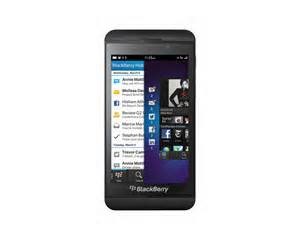Despite BlackBerry’s multiple attempts to create new products, the company is no longer a recognizable competitor next to Apple Inc.’s iPhones, and Google Androids. The struggling company announced a $4.9 billion deal with FairFax Financial Holdings, a group of investors who want to privatize the corporation. Once a strong competitor, BlackBerry was capable of preventing this collapse.
With rapid technological innovation in the handheld electronic market, Blackberry was too late to implement new features. While most consumers switched to a touch screen, Blac kBerry battled to stay loyal to their design and continued producing a keyboard. Also, instead of incorporating popular apps, BlackBerry continued to develop phones with only preliminary business features. Evidently, the company was behind in design until the release of the latest BlackBerry Z10. At this time however, consumers already abandoned the company, and the Z10’s unsuccessful launch onto the market resulted in $980-million worth of unsold phone inventory 1. The financial setback was a leading influence in BlackBerry’s decision to sell their remaining shares to Fairfax.
kBerry battled to stay loyal to their design and continued producing a keyboard. Also, instead of incorporating popular apps, BlackBerry continued to develop phones with only preliminary business features. Evidently, the company was behind in design until the release of the latest BlackBerry Z10. At this time however, consumers already abandoned the company, and the Z10’s unsuccessful launch onto the market resulted in $980-million worth of unsold phone inventory 1. The financial setback was a leading influence in BlackBerry’s decision to sell their remaining shares to Fairfax.
Due to Apple’s and Google’s substantial brand power, surpassing their sales  would require an entirely unique model. Nonetheless, if the company took advantage of new features sooner while also producing their original brand, BlackBerry could have stayed a competitor in the market.
would require an entirely unique model. Nonetheless, if the company took advantage of new features sooner while also producing their original brand, BlackBerry could have stayed a competitor in the market.
1: The Economist. The Economist Newspaper, n.d. Web. 28 Sept. 2013. http://www.economist.com/blogs/schumpeter/2013/09/blackberry
Figure 1:
Figure 2: http://www.bing.com/images/search?q=blackberry+Z10&go=&qs=n&form=QBIR&pq=blackberry+z10&sc=8-14&sp=-1&sk=#view=detail&id=24E33E1D4121E17064D5A54B8199A2BDEEBB835E&selectedIndex=1
Leopold, Todd. “BlackBerry’s Dwindling Users Ponder an Uncertain Future.” CNN. Cable News Network, 01 Jan. 1970. Web. 28 Sept. 2013. http://www.cnn.com/2013/09/23/tech/mobile/blackberry-users-future/index.html
